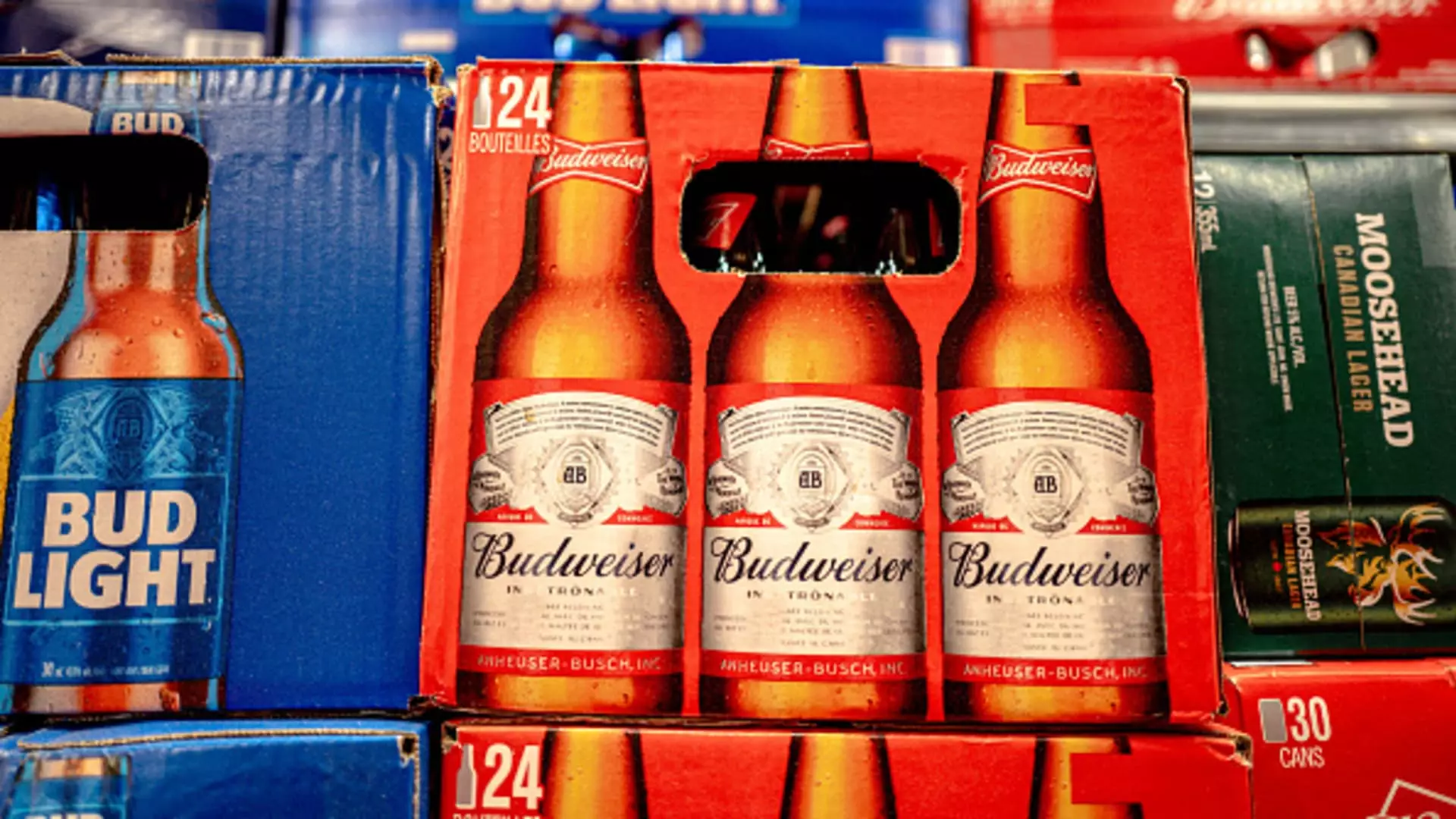In a surprising twist, shares of Anheuser-Busch InBev (AB InBev) experienced a significant uplift, with a nearly 9% increase on Wednesday after the company released its fourth-quarter earnings. This surge in stock prices comes despite an annual decline in sales volume, suggesting investor sentiment remains robust amidst challenging market conditions. The company’s latest financial report revealed a 3.4% rise in revenue, reaching $14.84 billion for the fourth quarter, outperforming analyst expectations of a mere 2.9% decline to $14.05 billion, according to data from LSEG. The markets responded enthusiastically, closing shares 8.5% higher on the day.
For the entirety of the fiscal year, AB InBev reported a 2.7% increase in sales, climbing to $59.77 billion, surpassing an anticipated $59.3 billion. However, beneath these positive figures lurks a troubling narrative: total volume sales fell by 1.9% during the fourth quarter and 1.4% throughout the year. CEO Michel Doukeris highlighted weak demand from key markets, particularly China and Argentina, attributing the declines to broader industrial weakness that seems to dampen consumer confidence. Such trends necessitate a strategic examination of the company’s market positioning and the factors influencing consumer behavior.
The declining demand for beer products at AB InBev raises critical questions regarding the evolving landscape of consumer preferences. Doukeris noted that the company is observing a shift towards non-beer alternatives, such as Cutwater Spirits and Brutal Fruit Spritzer, which are faring significantly better than traditional beer options. This trend reflects broader changes in consumer habits, particularly among younger demographics that prioritize health-oriented choices. As the global drinking culture evolves, beer’s market share could be challenged by growing preferences for cocktails and non-alcoholic beverages.
Looking forward, Doukeris expressed cautious optimism. His insights indicated that the anticipated challenges for 2025 primarily revolve around foreign exchange rates, particularly the strength of the dollar. He reassured investors that despite potential tariff concerns in the U.S. market, AB InBev does not foresee immediate threats from regulatory changes. This proactive stance suggests the company’s mindset is well-prepared to adapt to fiscal uncertainties while maintaining cost control mechanisms.
AB InBev maintains an ambitious outlook, targeting an EBITDA growth rate between 4% and 8% for 2025, which aligns with its medium-term projections. The fourth quarter saw substantial EBITDA growth of 10.1%, while annual growth reached 8.2%, indicating a robust operational performance despite market volatilities. This growth trajectory signals a potential resilience within the global beverages sector, further emphasized by Doukeris’ remarks on market momentum. He underlined the vibrant nature of the beer category and its ability to innovate and adapt.
In the face of declining beer volumes, it is essential to note the increasing prevalence of non-alcoholic products as part of AB InBev’s strategy. Similar to approaches taken by competitors like Carlsberg, which recently diversified into non-alcoholic beverages with its acquisition of Britvic, AB InBev appears to be navigating toward a more inclusive product portfolio. With health-conscious consumption on the rise, the company is positioned to capitalize on the lower calorie appeal of non-alcoholic options, potentially luring a new wave of consumers seeking healthier indulgences.
As AB InBev moves forward in a rapidly shifting market, its ability to balance traditional beer offerings with innovative non-alcoholic options will be crucial. The recent financial performance may signal a recovery phase, but the longer-term outlook will depend on strategic adaptability to consumer preferences. With strong leadership and a proactive response to emerging trends, AB InBev seems well-poised to maintain its standing in the competitive global beverage sector, setting the stage for resilience and growth in an era of transformative change.

